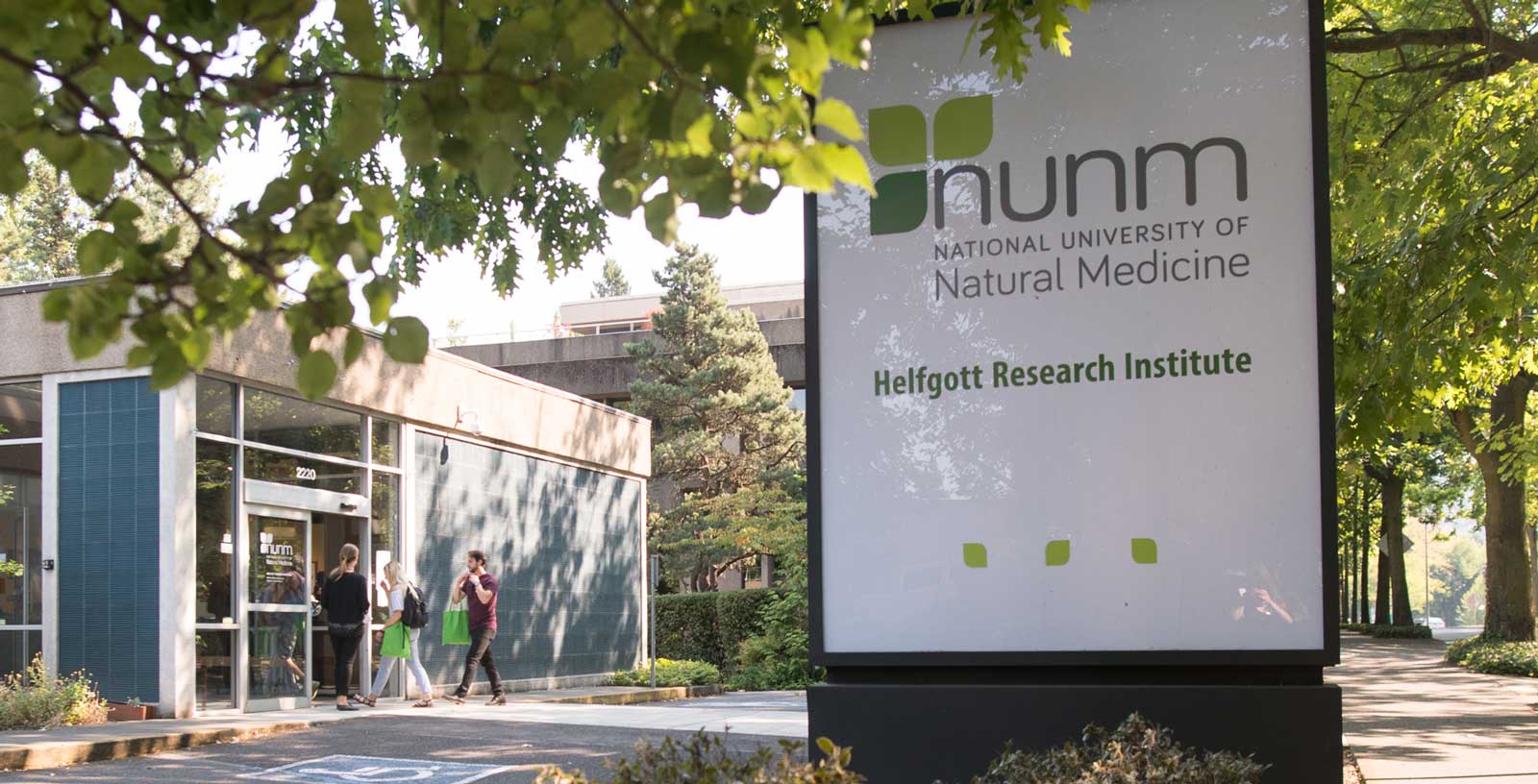The Helfgott Research Institute at the National University of Natural Medicine is a professionally independent, non-profit research institute whose mission is to conduct rigorous, high quality, research on the art and science of healing, specifically working to understand natural forms of medicine. Together, scientists from the fields of naturopathic medicine, Chinese medicine, acupuncture, immunology, and nutrition apply their expertise to the study of natural medicine.
Established in June of 2003 with the help of a donation from Don Helfgott, NUNM’s Helfgott Research Institute (Helfgott) has a state-of-the-art science laboratory, as well as the resources to carry out clinical research.
Current faculty research projects at Helfgott include grants directly funded by the National Institutes of Health’s National Center for Complementary and Alternative Medicine. In addition, Helfgott participates in several collaborative grants with Oregon Health & Sciences University (OHSU) as well as with other Western biomedical and naturopathic schools.
Helfgott promotes a strong student research program. NUNM students are excited to contribute to the evidence base that supports their profession. Each year as much as 25% of the NUNM student body participates in research. NUNM students are published in national journals and present their research at local, national and international conferences. Learn more about our Master of Science in Clinical Research program.
Support Natural Medicine Research at NUNM
Contact Helfgott Research Institute
Helfgott Research Institute
National University of Natural Medicine
2220 SW 1st Avenue, Portland, OR 97201
Phone: 503.552.1751
Fax: 503.227.3750
E-mail: research@nunm.edu
Our Vision
At Helfgott, we conduct studies to advance the science of natural medicine. In the short term, we hope that these studies will inform clinical practice. In the long term, our goal is to revolutionize health care.
The health care system in the United States has become a disease management system. Chronic disease has replaced infectious disease as the primary health concern of most Americans. While pharmaceutical medicine (antibiotics) can effectively eliminate some microbes, chronic disease is more complex, and therefore requires a more comprehensive approach. Lifestyle, nutrition, and behavioral changes all affect chronic disease. When these approaches are combined with natural medicine (herbs, homeopathy, hydrotherapy, and acupuncture), they can prevent, treat, or heal chronic disease.
Natural approaches have been used clinically for thousands of years. Traditional medicine is still used by 80% of the world. But is it effective? As industrialized nations have moved toward evidence-based medicine, the need for clinical studies to demonstrate the safety and effectiveness of natural medicine has developed. Natural medicines can be studied, although not in the same way as pharmaceutical medicine. For examples, placebos and blinding are more complicated in natural medicine. It is not possible to blind someone to a new diet. And what is “placebo” massage? High quality natural medicine research requires overcoming the methodological challenges presented by the very nature of the therapies.
One of Helfgott’s strengths is our expertise in designing natural medicine clinical trials. We employ top faculty in the fields of nutrition, psychology, immunology, whole systems research, and acupuncture and are training other natural medicine research faculty. We collaborate significantly with conventional biomedical researchers so that we can use the best technology to study ancient traditions.
We envision Helfgott as the premier natural medicine research institute. Our vision includes a consortium of researchers from naturopathic medicine, Chinese medicine, Ayurvedic medicine, physical medicine, energy medicine, and other natural medicine disciplines. We vision an institute based on health rather than disease. We see a think tank that develops new innovative approaches to health care, and clinical floors where these approaches can be piloted. We see the development of research moving away from treating symptoms, and moving toward promoting health.
